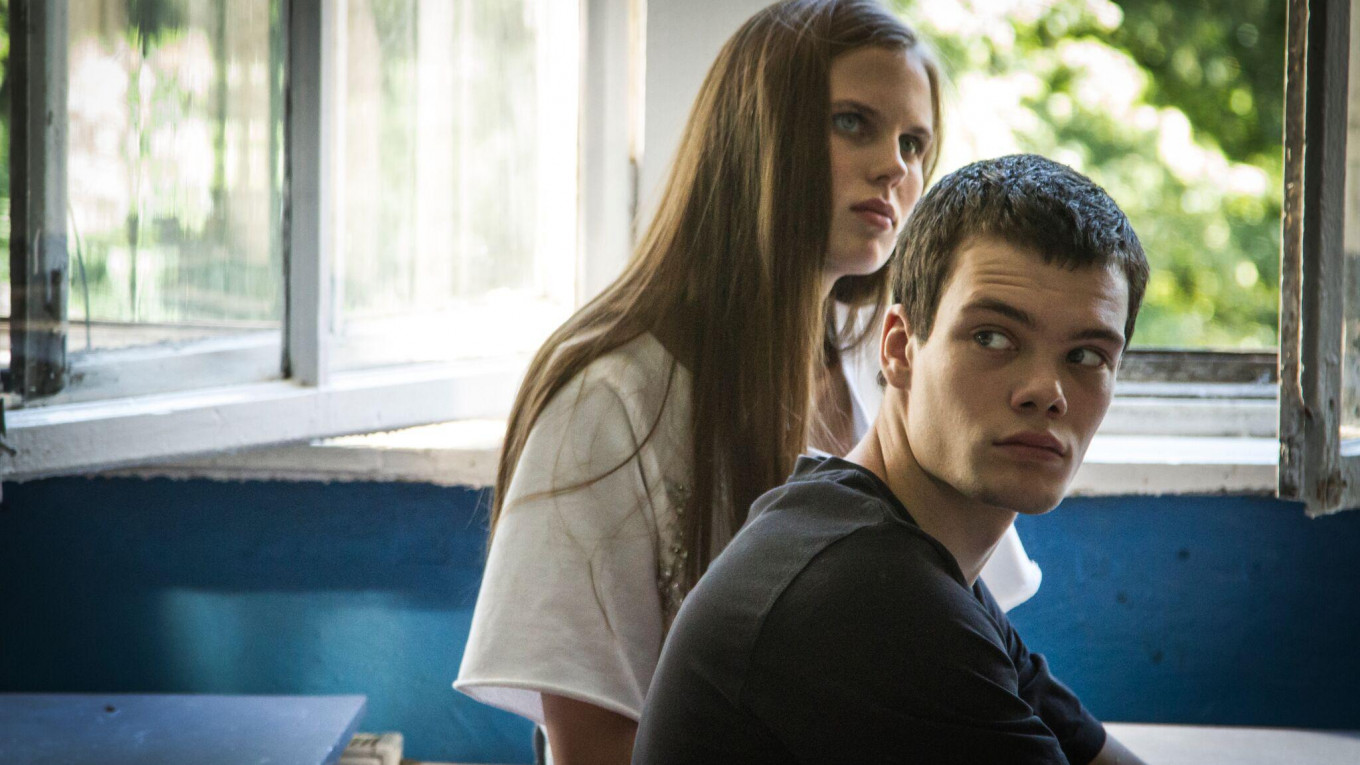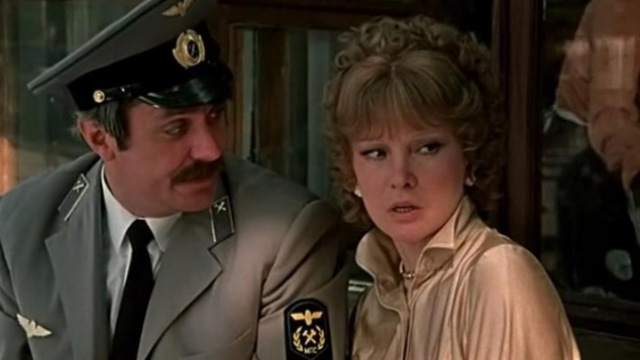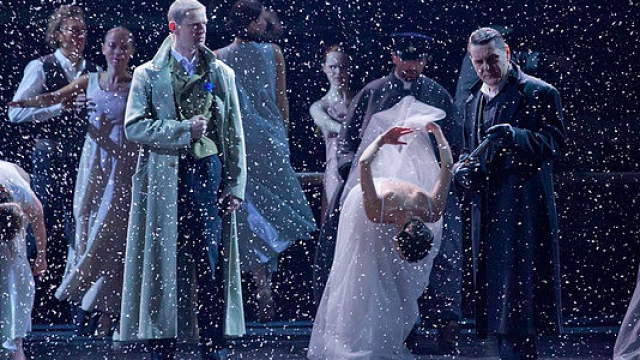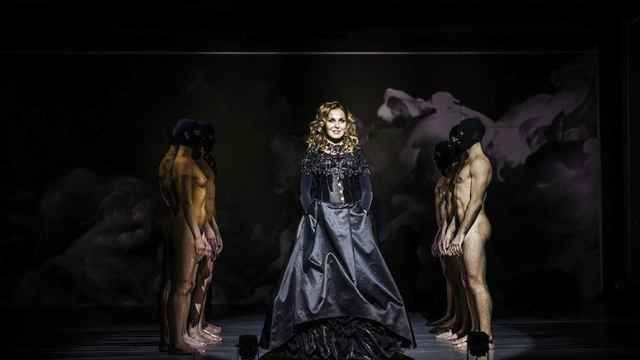Kirill Serebrennikov was the first to
stage Marius von Mayenburg’s darkly brilliant play “Martyr” outside of Germany.
The Russian writer-director’s cinematic adaptation of the play, “The Student,”
opens in Russia on Oct. 13, having already picked up the Francois Chalais Prize
and a nomination in the Un Certain Regard Award at the prestigious Cannes Film
festival this year. The film examines the extremes of dogmatic adolescent
behavior and sheds an uncompromising light on the role of religion in modern Russia.
A Religious Awakening
The story of a disillusioned high school student who channels his teenage revolt into religious fanaticism used the original cast from the Gogol Center’s performance which debuted in 2014, with the major exception of Veniamin, the main character.
Played by relative newcomer Pyotr Skvortsov, Veniamin develops a fevered obsession with biblical scripture which begins a slow slide into outright zealotry. At first, Veniamin refuses to attend mixed swimming lessons, citing “religious feelings” as the reason. His mother — played brilliantly by Yulia Aug — shows little understanding of her son’s motivations, blaming his behavior on drugs.
Veniamin wreaks havoc at one of the swimming lessons by jumping into the pool fully clothed and successfully calling for a ban on two-piece bathing suits for the girls. His victory emboldens him and he goes on to challenge his teachers’ sex education and evolutionary theory, provoking the school’s liberal biology teacher Yelena Krasnova, played by formidable Viktoria Isakova.
Filming took place in Kaliningrad, with students from a local high school playing extras. This gives the film a somewhat documentary edge. “The most challenging thing for the actors was to mix with this group, to become a part it and behave like real students without artistic embellishment. They spent time together, went out together, and became friends,” said Serebrennikov.
Veniamin supports his views with a barrage of scriptural quotes, annotated on screen and meticulously referenced.
“He is not a zealot, but a guy who realizes that to achieve his objectives he needs to quote the Bible and that this will get people scared, because people in Russia are afraid of the Bible, afraid to say the wrong thing or something that might not align with official ideology,” said Serebrennikov.
Two of his classmates fall under his spell: Grigory, who suffers from a debilitating limp, and one of the school’s most popular girls, Lydia. The pair vie for Veniamin’s attention, both emotional and sexual. Meanwhile the uncritical endorsement of Veniamin’s choke-hold approach to scripture by the school administration demonstrates the conservative bias of the establishment.
Serebrennikov favored long, unbroken sequence shots in his filming. The resulting cinematography is intense and unrelenting, reflecting the grandiose themes Serebrennikov spotlights as the film spirals toward its denouement.
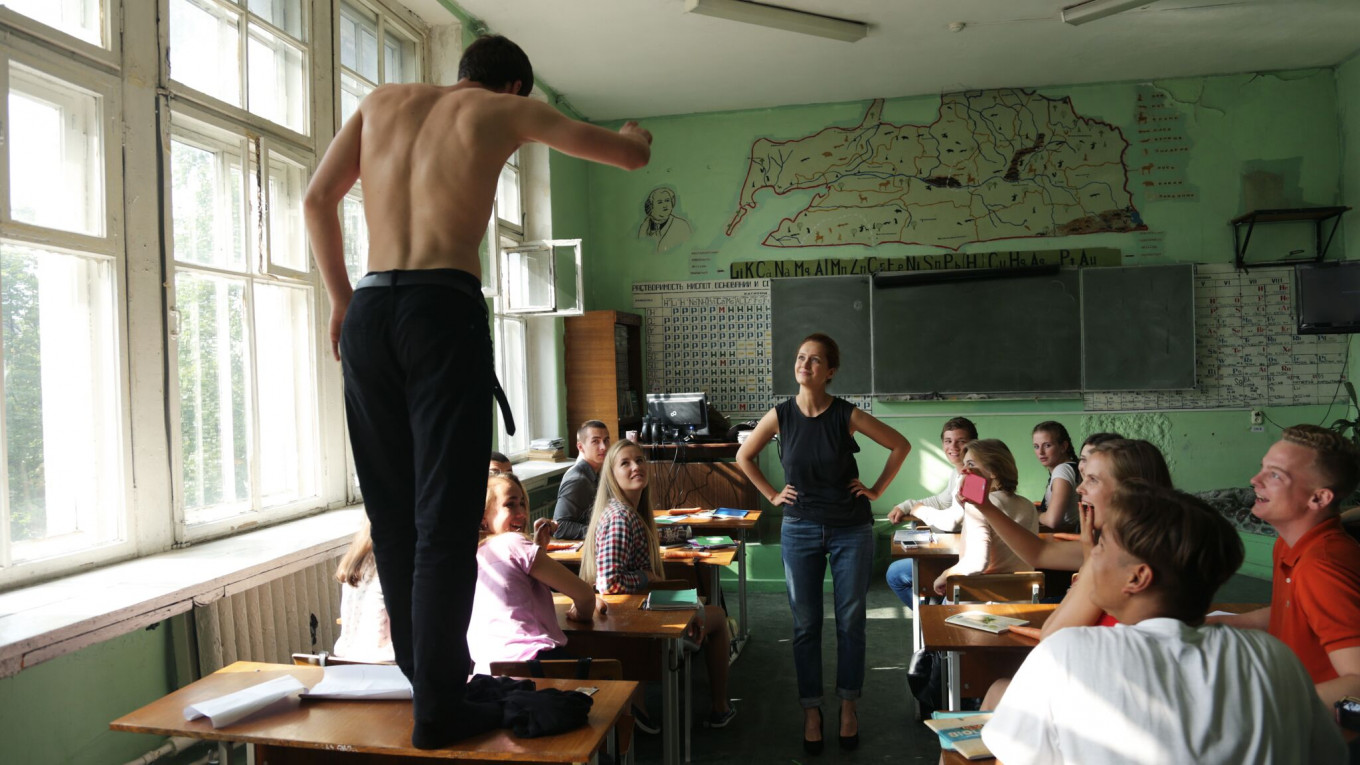
Wider Connotations
“The Student” is not the first time Serebrennikov has turned one of his theater performances into a film. Early in his career he filmed critically acclaimed “Izobrazhaya Zhertvu” (Playing the Victim) based on a play of the same name that he also directed. Best known internationally for “Betrayal,” a film which was nominated for the Golden Lion at the Venice International Film Festival, Serebrennikov is currently the artistic director of the Gogol Theater.
Serebrennikov wanted “The Student” to be different from the original performance in more than the title. “The theater performance is actually more funny, there’s more obviously comic scenes, while the film turned out more dramatic,” said the director.
The story offers an obvious parallel in a country where the boundaries between state and church are increasingly blurred. Formerly a realm of atheism, where religion was routinely described as “opium for the people,” Russia has since become a country where “violating religious feelings” is a crime worthy of imprisonment.
When questioned about the context of the film in today’s Russia at the premiere’s press conference, Serebrennikov cited a recent case in Yekaterinburg, where a young man was arrested for video blogging himself playing Pokemon Go in a church.
“My Facebook feed was full of comments from Orthodox people who suggested that prison was the right place for him. He is an unpleasant type of guy — an instigator who is probably just plain stupid, but to send him to prison for five years? What about the Orthodox activists who put a pig’s head at the entrance to the Moscow Art Theater last year? This just goes to show what Orthodox Christians are capable of doing.”
A Message from The Moscow Times:
Dear readers,
We are facing unprecedented challenges. Russia's Prosecutor General's Office has designated The Moscow Times as an "undesirable" organization, criminalizing our work and putting our staff at risk of prosecution. This follows our earlier unjust labeling as a "foreign agent."
These actions are direct attempts to silence independent journalism in Russia. The authorities claim our work "discredits the decisions of the Russian leadership." We see things differently: we strive to provide accurate, unbiased reporting on Russia.
We, the journalists of The Moscow Times, refuse to be silenced. But to continue our work, we need your help.
Your support, no matter how small, makes a world of difference. If you can, please support us monthly starting from just $2. It's quick to set up, and every contribution makes a significant impact.
By supporting The Moscow Times, you're defending open, independent journalism in the face of repression. Thank you for standing with us.
Remind me later.


